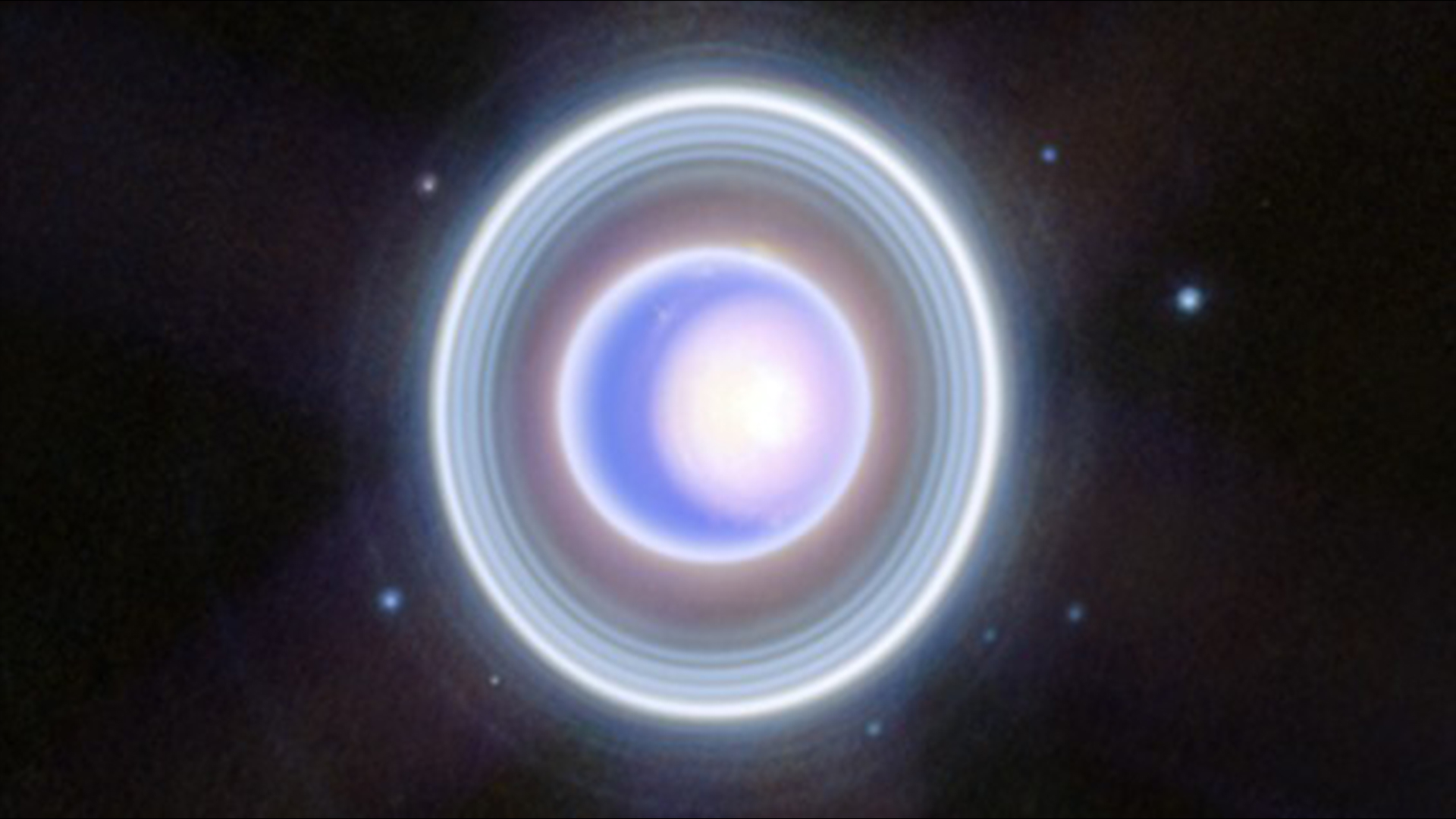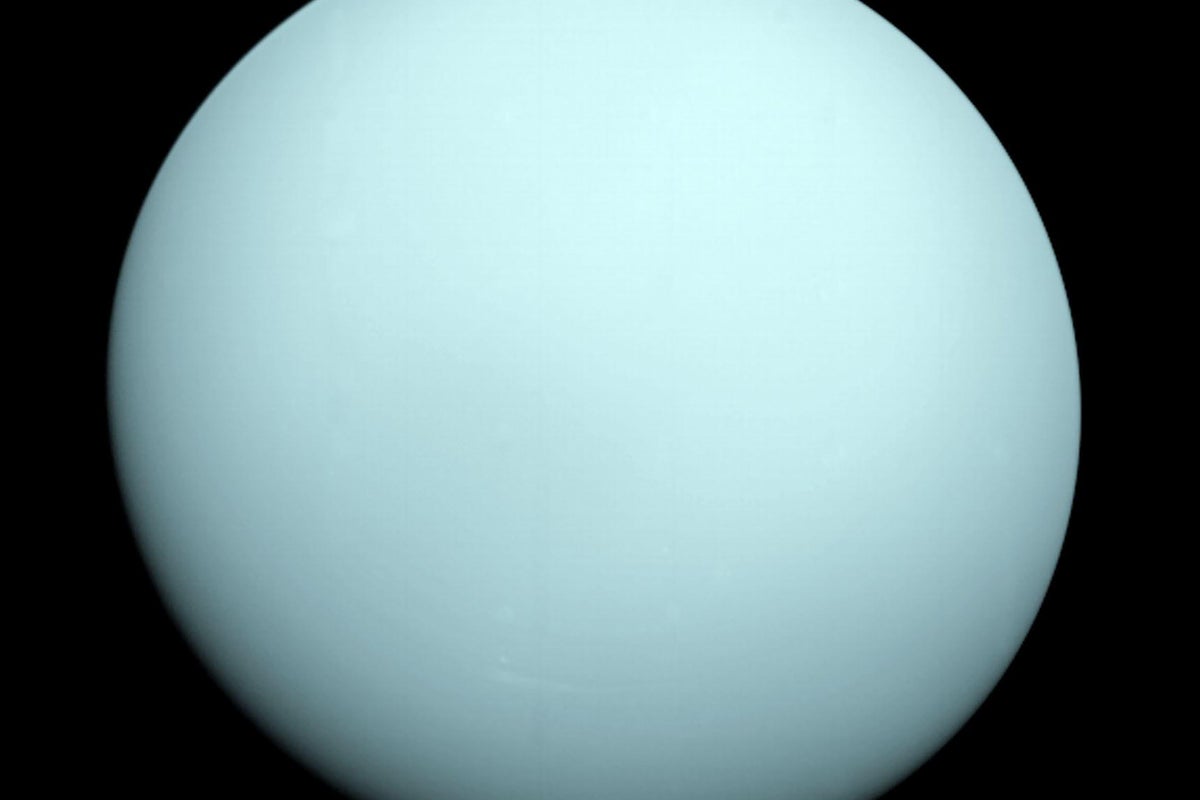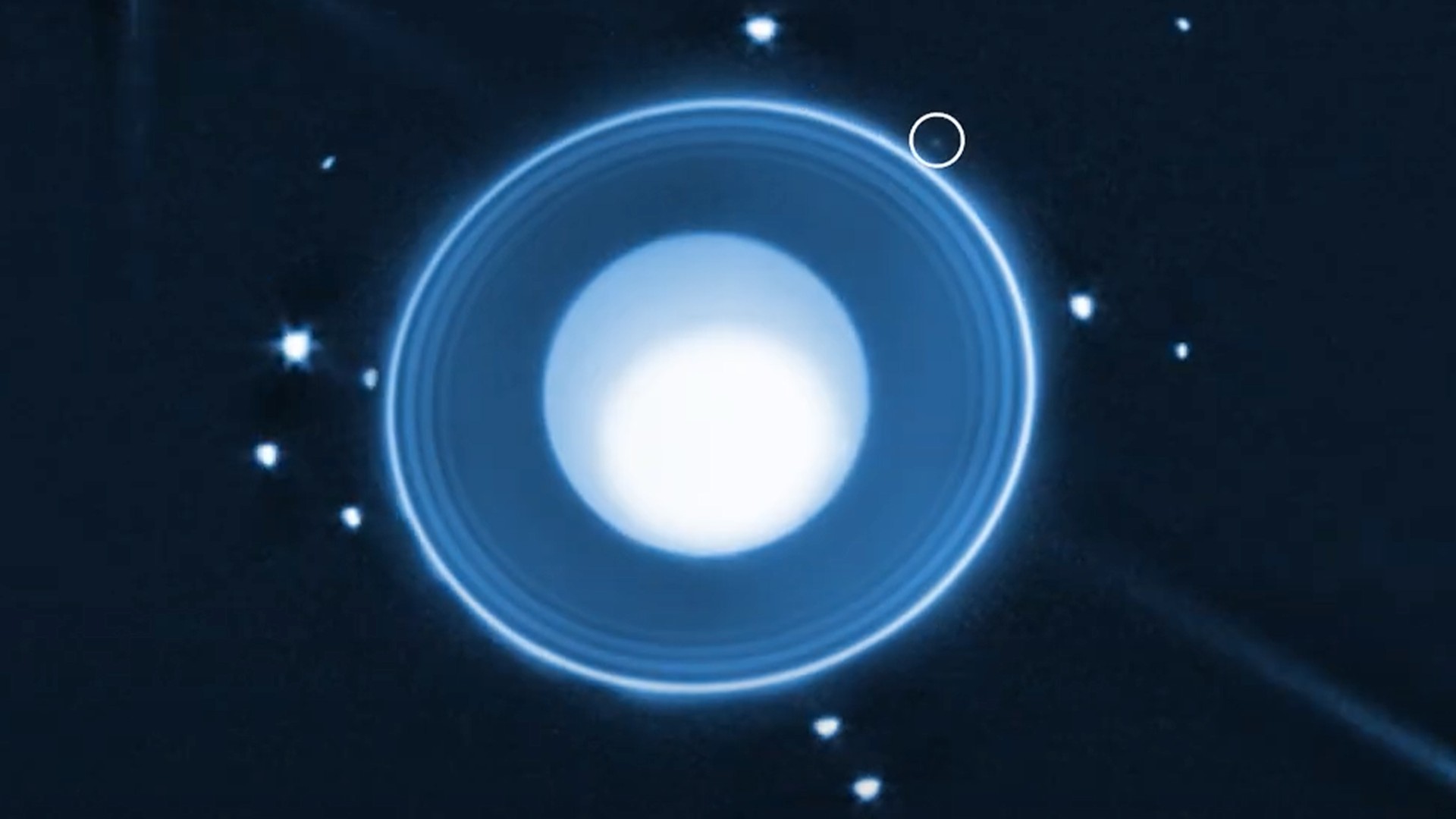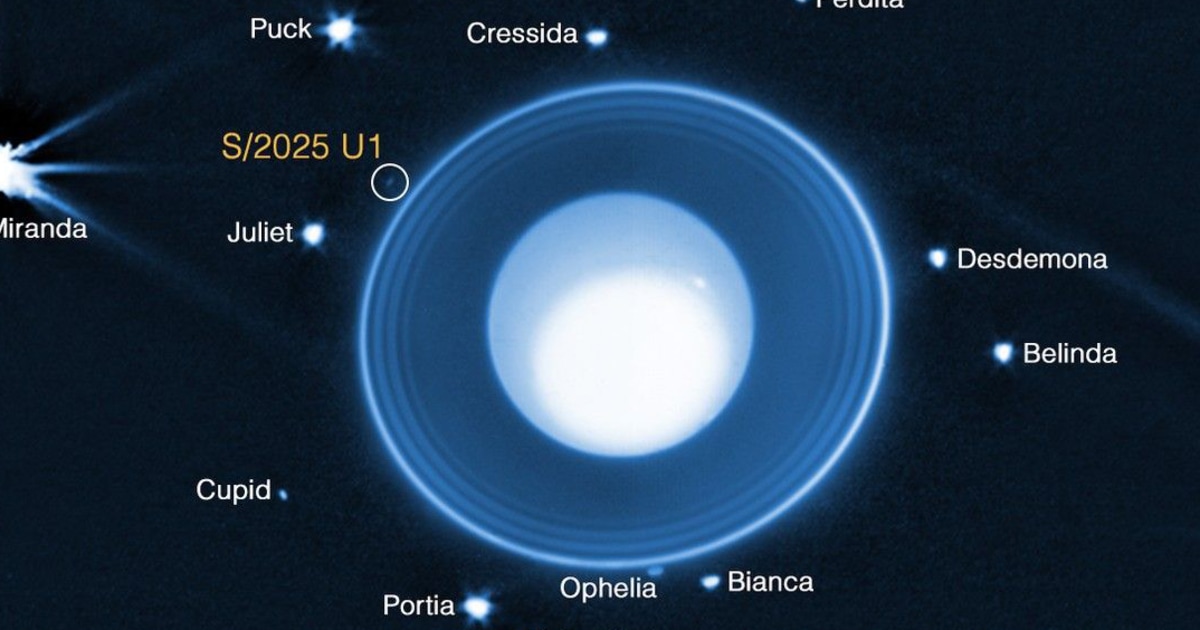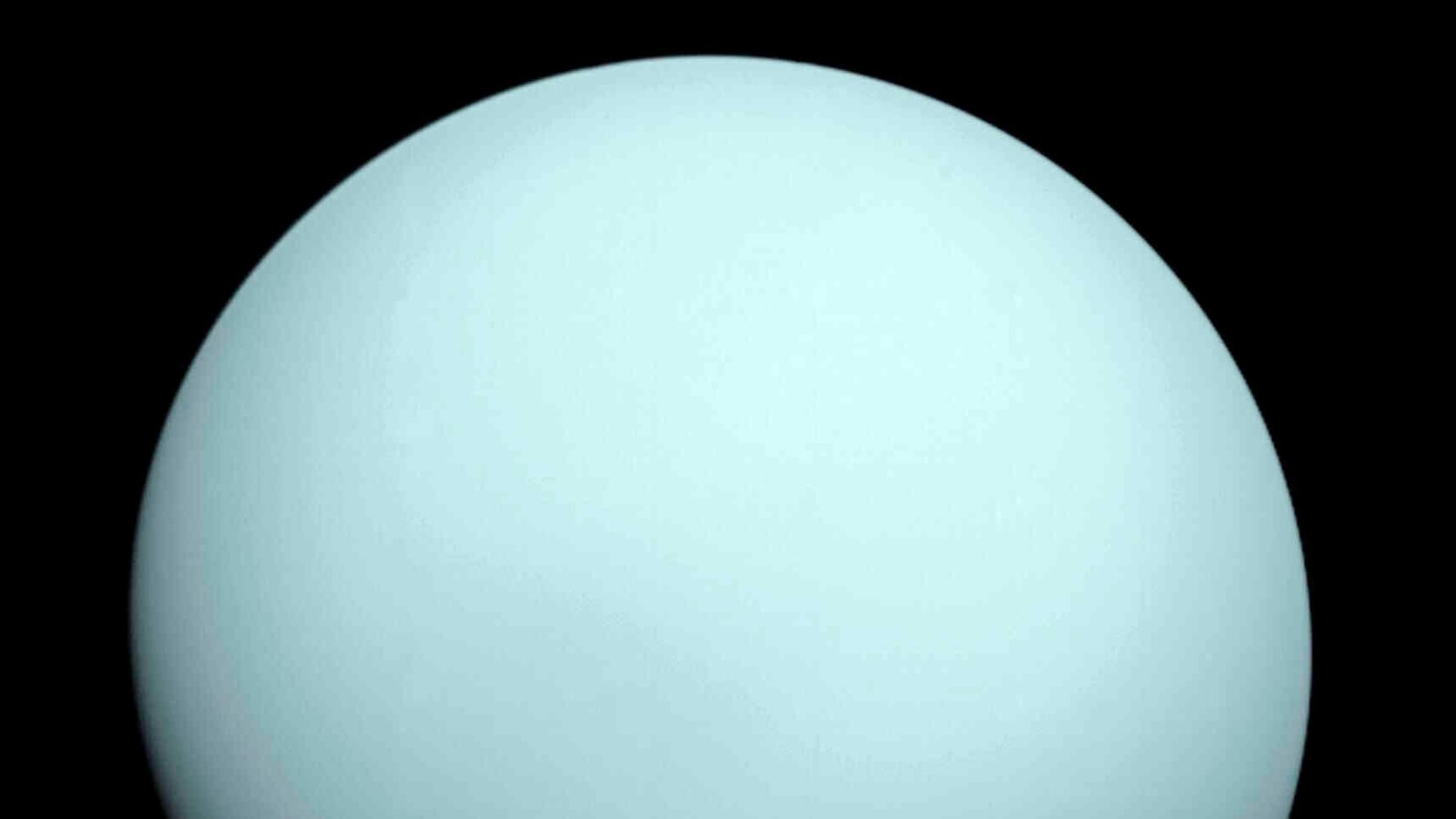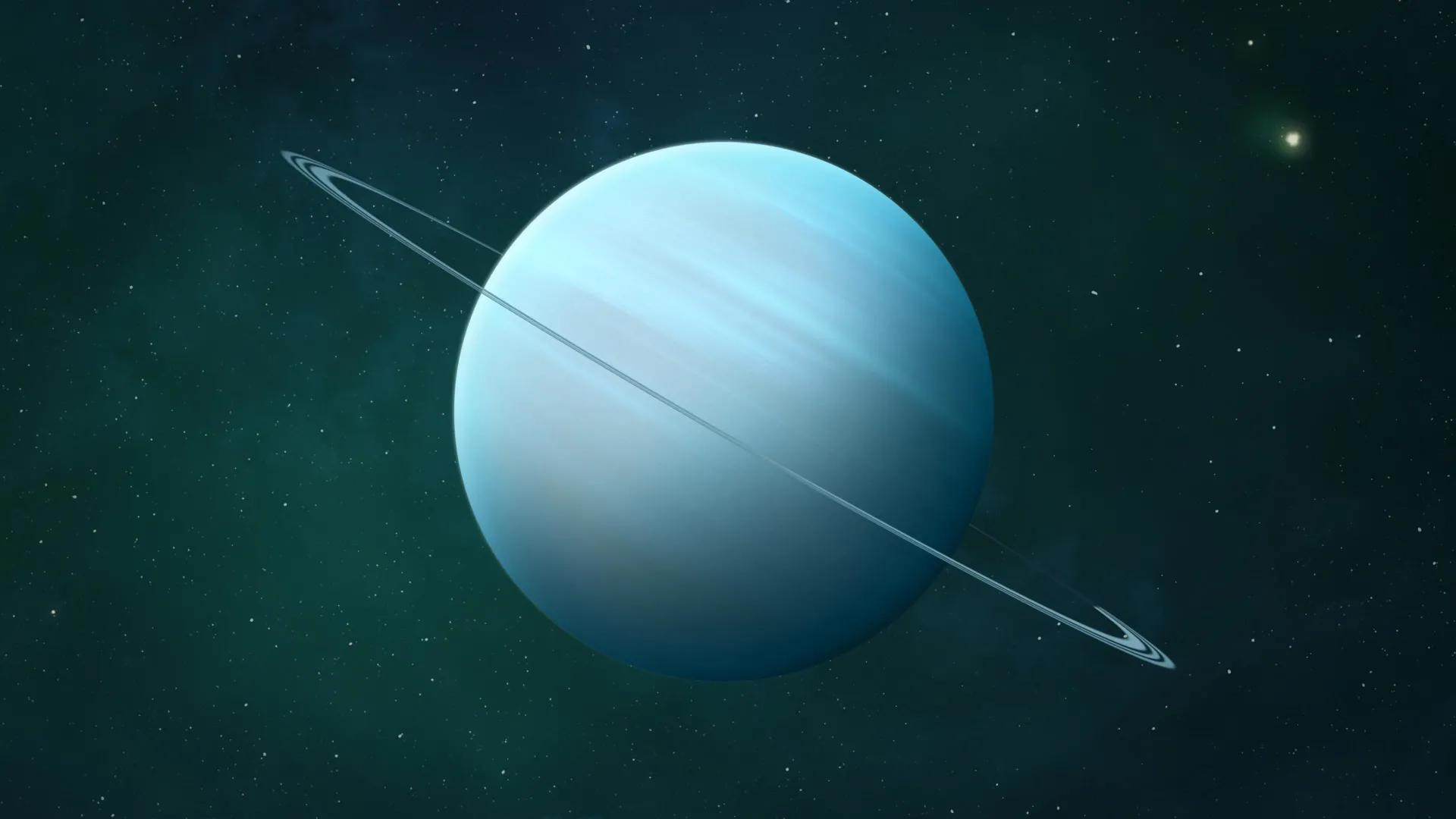The James Webb Space Telescope has spotted a never-before-seen moon orbiting Uranus, bringing the planet’s count of natural satellites to 29. The moon, for now dubbed S/2025 U1, is just 6 miles (10 kilometers) in diameter, which is why it was invisible to other telescopes and the Voyager 2 spacecraft when it made its 1986 flyby of the icy planet. …
Read More »Tag Archives: Uranus
Astronomers Discover a Previously Hidden Moon Orbiting Uranus
Astronomers spotted a never-before-seen, bite-sized moon orbiting Uranus, bringing the ice giant’s follower count to 29. The moon is so small and faint—well below the detection threshold of NASA’s Voyager 2 probe—that scientists believe Uranus may host many more undiscovered, tiny moons. The moon, provisionally named S/2025 U1, first entered the view of the James Webb Space Telescope (JWST) on …
Read More »James Webb Spots Mysterious Object Orbiting Uranus
Circle Strafe NASA’s James Webb Space Telescope has spotted a tiny moon orbiting Uranus, expanding the number of the planet’s known satellites to 29. In early February, the space observatory’s Near-Infrared Camera (NIRCam) caught the minuscule and still-unnamed object orbiting the gas giant at a distance of 35,000 miles. “It’s a small moon but a significant discovery, which is something …
Read More »Nasa finds a whole new moon around Uranus
Your support helps us to tell the story From reproductive rights to climate change to Big Tech, The Independent is on the ground when the story is developing. Whether it’s investigating the financials of Elon Musk’s pro-Trump PAC or producing our latest documentary, ‘The A Word’, which shines a light on the American women fighting for reproductive rights, we know …
Read More »Scientists find tiny new moon around Uranus with the James Webb Space Telescope (photos, video)
Astronomers using NASA’s James Webb Space Telescope have discovered a newfound moon orbiting icy Uranus, the seventh planet from the sun. The moon, known as S/2025 U1, is just 6 miles (10 kilometers) or so in diameter, which made it invisible to NASA’s Voyager 2 probe during its 1986 flyby of the planet, as well as rendering it undetectable by …
Read More »New moon orbiting Uranus is so small, you could walk it in two hours
Roll out the cosmic welcome mat for our solar system’s newest resident: a never-before-seen moon orbiting Uranus. A team of astronomers announced Tuesday that a new satellite measuring roughly 90 football fields across was discovered around the seventh planet from the sun. The moon, which was first seen by NASA’s James Webb Space Telescope on Feb. 2, joins a busy …
Read More »NASA’s Webb telescope finds a new tiny moon around Uranus
NEW YORK — The Webb Space Telescope has spotted a new tiny moon orbiting Uranus. The new member of the lunar gang, announced Tuesday by NASA, appears to be just six miles (10 kilometers) wide. It was spotted by the telescope’s near-infrared camera during observations in February. Scientists think it hid for so long — even eluding the Voyager 2 …
Read More »NASA telescope spots a new moon around Uranus
NEW YORK (AP) — The Webb Space Telescope has spotted a new tiny moon orbiting Uranus. The new member of the lunar gang, announced Tuesday by NASA, appears to be just six miles (10 kilometers) wide. It was spotted by the telescope’s near-infrared camera during observations in February. Scientists think it hid for so long — even eluding the Voyager …
Read More »Voyager missed it, but now we know Uranus has a fiery secret
A new study led by University of Houston researchers, in collaboration with planetary scientists worldwide, suggests Uranus does have its own internal heat — an advance that not only informs NASA’s future missions but also deepens scientists’ understanding of planetary systems, including processes that influence Earth’s climate and atmospheric evolution. The discovery resolves a long-standing scientific mystery about the giant …
Read More »A Hidden Heat Source on Uranus Just Changed What We Know About Planets – SciTechDaily
A Hidden Heat Source on Uranus Just Changed What We Know About Planets SciTechDaily Uranus is warmer than everyone thought New Atlas NASA, Oxford Discover Warmer Uranus Than Once Thought NASA Science (.gov) Confirmed: Uranus Really Is Hotter Than It Has Any Right to Be ScienceAlert 6 secrets about the first planet found by telescope that scientists still don’t understand. WION Source link
Read More »